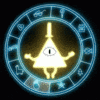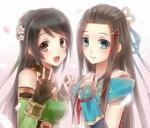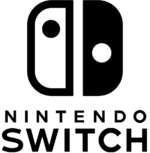It was never a singular reason. A few examples include:
* The Brand: They connected the new console with their previous one, notorious for being littered with casual and hopeless titles and with occasional gems that never get brought to the table, and for the most part the association of good games goes towards Nintendo titles. They carried the reputation that the predecessor received to the next console, a reputation that Nintendo was probably and eventually criticised the most for at the end of the console generation. Had the name been different for the Wii U, it may have not been as initially bad in terms of launch.
* The Marketing: It's hard to believe the console felt it was geared towards capturing the 'lost' audience when, rather than being shown images of badassery in Zelda, F Zero and Metroid, they give us coloured squares with a really dodgy looking singing app and a Lego game. Now, I can vouch for the Lego game being cool, but your general audience will not. They focused too much on creating a showcase for the Wii U's capabilities instead of it's capacity, and it left many to wonder if it was worth it. Generally speaking, the marketing campaign was too safe and uninviting to make your average gamer want a purchase.
* The Games: The games might be here now, but they weren't to begin with, at least the games to buy a Wii U for. You could say Super Mario Bros. U, you could say Nintendo Land but there is no denying they are lost on the majority of people, people who are currently enjoying the likes of Wind Waker HD, Mario Kart 8 and Bayonetta 2. The lineup is also riddled with delays, like the infamous Ubisoft games Rayman Legends and Watch Dogs, and Pikmin 3, which to be honest, the major consumer doesn't care for in the first place. The Wonderful 101 was really good, but people don't even know it exists. The point is, the games rolled in AFTER people treated the console with terminal illness.
* The Support: Third Parties are both blame and victim for their results with the Wii U. Blame because of half assery in many regards, victim because things didn't pay off. As a result, you have indies and exclusives trying to fulfil the void of relevance, but that seriously won't carry the console. More over, gamers are far too attached to award hunting and DLC that it affects how people perceive what the most fulfilling version of a title quite a fair bit. Then you have things like Nuketown 2025 coming a to a game 2 years later which really does affect opinion.
I don't think Miyamoto is wrong about having too much focus on two screens. While the idea is a nice change, it doesn't create a consistent environment. There was a ridiculously good amount of it creating an even more immersive environment for the gamer, but effectively does quite the opposite after prolonged play. People complained that the Gamepad had to be used for certain games in conjunction with the TV, and that there was no option to change that focus to a single screen. The problem is the constant head switching, an ergonomic issue.
As for NFC, people have already seen the gimmick with Skylanders and Disney Infinity. It's essentially a money grab to most people who would buy them in the first place: parents. Extra focus on this wouldn't have exactly brought greater success to the Wii U.
Honestly, I don't know how powerful Nintendo's course of action will be after the initial burst of Super Smash Bros. for Wii U. Games like Yoshi's Woolly World, Fire Emblem X Shin Megami Tensei and Xenoblade Chronicles X will probably do a lot less than I would hope they would. The only thing I can see is Zelda U.
Keep in mind when I say all this, I'm thinking of the general consumer, the kind that doesn't actively research the industry, which I would believe to still be the majority of consumers. We also have to look forward to a juncture in the near future about human responsibility with regards to how in the loop people are becoming. That's gonna impact consumerism.



























